
Contents
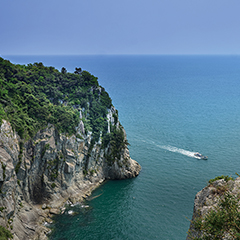
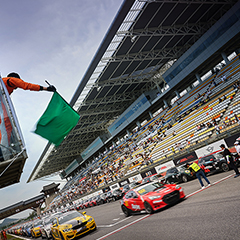
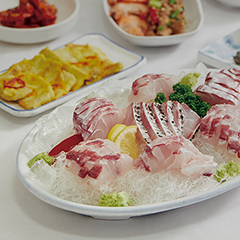
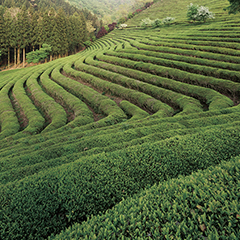
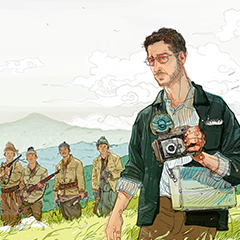
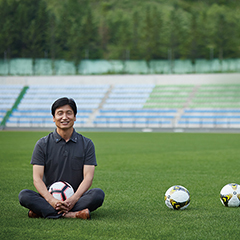
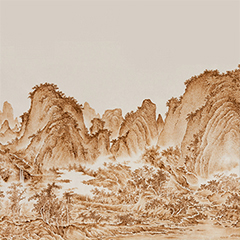
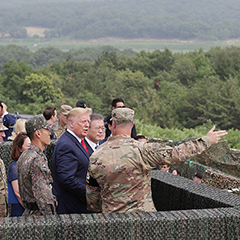
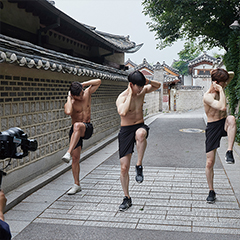

Spotlight · Written by Kim You-rim
45 Years of Top
Quali-tea
Boseong Green Tea Festival
Marking its 45th year this year, the Boseong Green Tea Festival is one of Korea’s longest running festivals
with more than 70 programs featuring tea culture and experience.
This event is among several unique festivals hosted by Jeollanam-do Province.
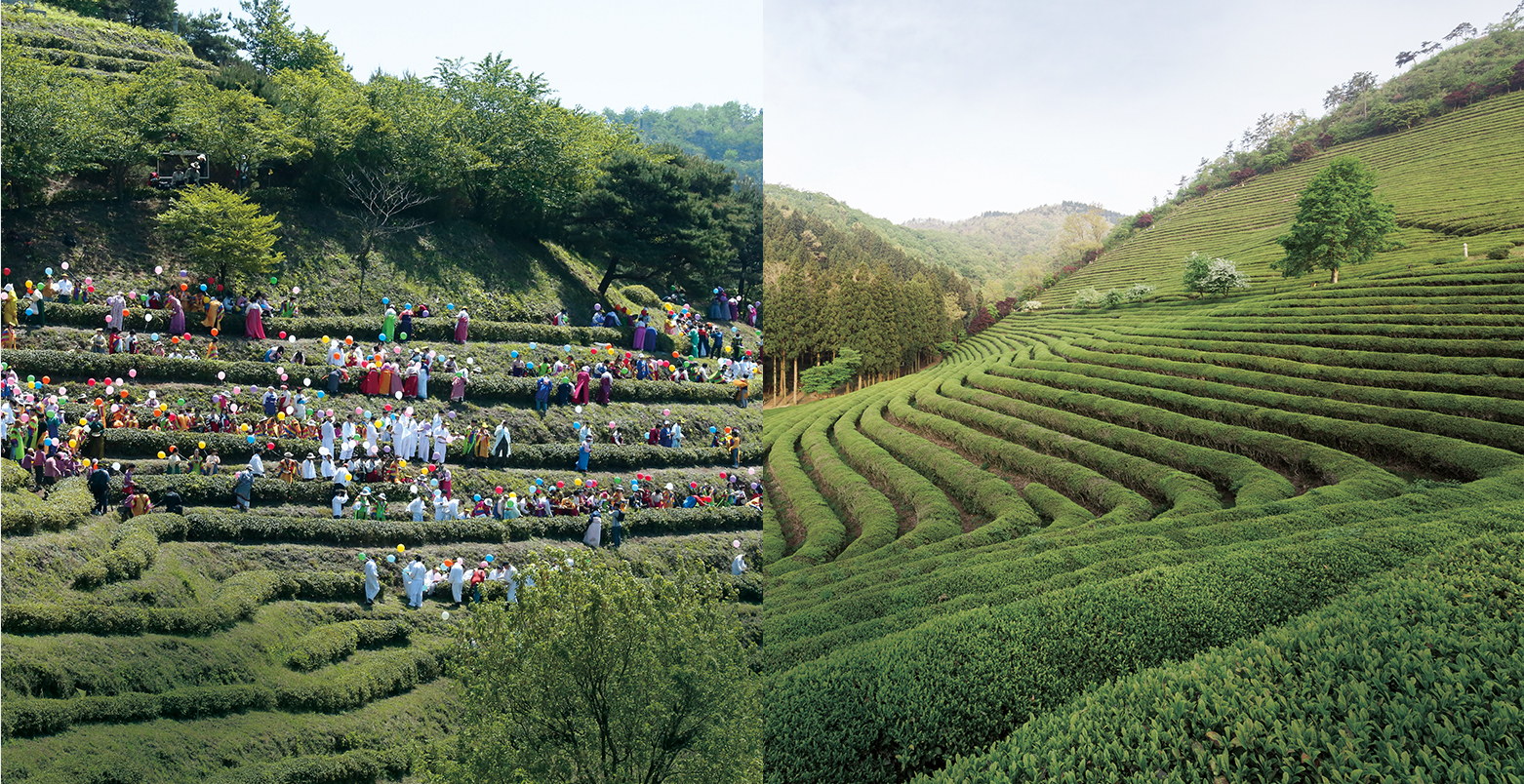
© Boseong-Gun(left), © imagetoday (right)
Korea’s Tea Hub
Since starting tea cultivation in 1939, Boseong-gun County is the hub of the domestic tea industry with the country’s largest production capacity. According to historical records, the county has grown tea trees since ancient times as residents enjoyed making tea. Wild tea trees are still cultivated in this region to maintain its illustrious history of tea, with one of the villages there named Dajeon, meaning “tea farm.”
Other Festivities
In addition to the festival, the county also hosts the Seopyeonje Boseong Sori Festival featuring pansori (one-person lyrical opera), which is on the UNESCO World Heritage list; the Illimsan Mountain Royal Azalea Cultural Festival at the country’s largest habitat for royal azaleas; and the Yulpo Beach Real Fishing Festival highlighting fishing and water sports.
More about Boseong Green Tea Festival ⟶
Jeollanam-do Province:
Never-ending Excitement
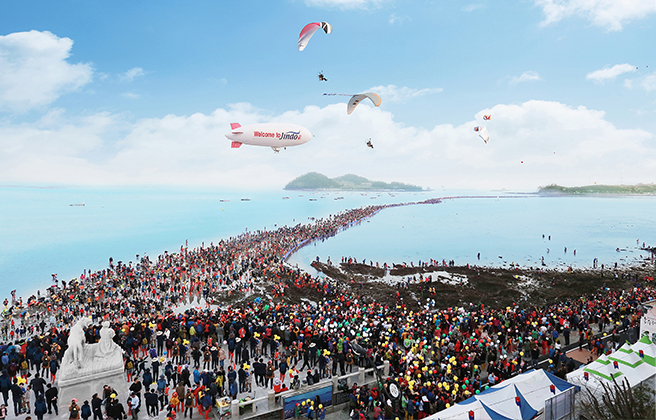

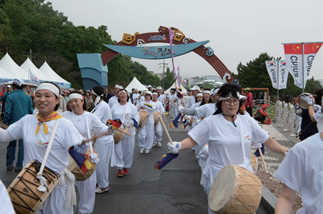
© Jindo County
Jindo Miracle Sea Road Festival
/ March 21-24
A marvelous natural spectacle lasting just one hour occurs once a year in Jindo-gun County, as rape flowers begin to blossom. As the tide goes out, the sea mysteriously parts and a hidden pathway as long as 2.8 km appears. This 40 meter-wide road connects the main island to a smaller nearby island and serves as an open stage for performances of traditional Korean music. Visitors can also search for sea creatures like clams, octopus, conch or abalone.
More than 500,000 people flock to the Jindo Miracle Sea Road Festival every year to see the Korean version of the parting of the Red Sea. Yet this miracle of nature is not the only attraction in the county; the area is also famous as the birthplace of “Arirang,” Korea’s leading folk song that is considered the de facto national anthem, and nongak (traditional farmers’ music). Thus it is no surprise that this festival has been named the nation’s best for six straight years by the Ministry of Culture, Sports and Tourism.
More about Jindo Miracle Sea Road Festival ⟶
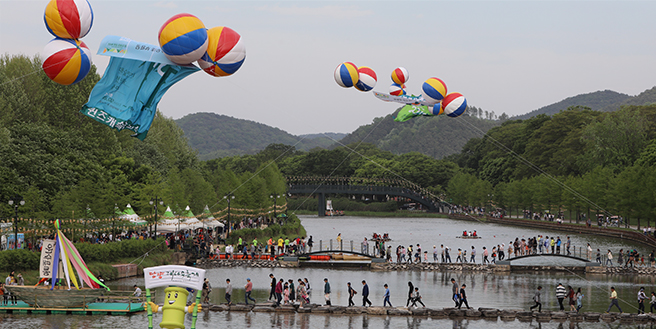
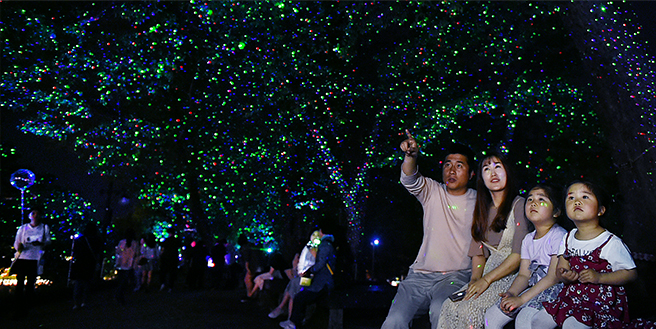
© Damyang County
Damyang Bamboo Festival
/ May 1-6
As the only bamboo-themed festival in Korea, this event has origins dating as far back as the Goryeo Dynasty (918-1392), when people on the Korean Peninsula planted bamboo trees in villages and forests every year on May 13 of the lunar calendar. Marking its 21st year, the festival was recognized as an “excellent” cultural festival for five consecutive years and a leading festival for three years.
In addition to bamboo, the festival highlighted other programs utilizing Damyang-gun County’s ecological resources. Exhibitions and sales of bamboo products and traditional cuisine and cultural art performances were also held. Family-friendly programs included canoeing, fishing with baskets and the making of water guns using materials made from bamboo trees. This year’s event also presented a media façade for the first time and a star laserlight show.
More about Damyang Bamboo Festival ⟶
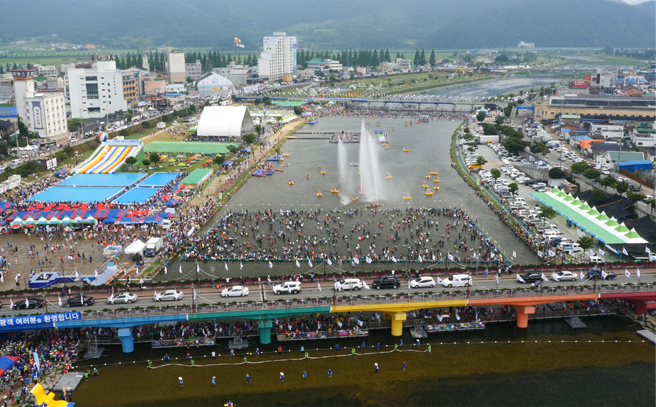
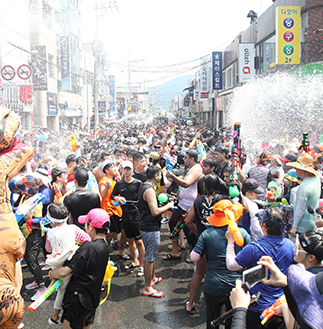
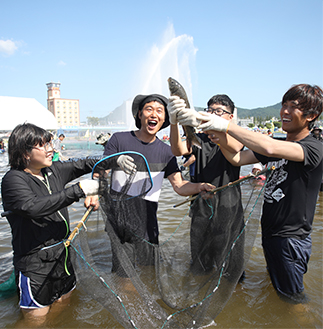
© Jeongnamjin Jangheung Water Festival
Jeongnamjin Jangheung Water Festival
/ July 26-Aug. 1
Those who want to beat the summer heat should attend the 12th annual Jeongnamjin Jangheung Water Festival, which will attract hordes of visitors ready to get drenched and have fun with water-themed events and games. Jangheung is a small county that is located near the sea of Boseongman Bay, and by the big lake created by Jangheung Dam and Tamjingang River.
This festival is held each year around the end of July. Unlike conventional festivals with exhibits, performances and shows, the Jeongnamjin Water Festival aims to offer something different by having summer and water-themed events where visitors can enjoy a multitude of fun and exiciting summer games and activities like “The biggest water fight.”
The water-filled course starts from the county’s resident hall and passes through Jungang-ro Street en route to the final destination of the parking lot by Jangheung Bridge. Water streams will constantly be shot along with water bombs from everywhere, soaking everyone in their path. Another highlight is the county’s traditional folk game gossam (tug-of-war) on water. Various gossam contests will also be featured in a series through village, national and visitor competitions.
More about Jeongnamjin Jangheung Water Festival ⟶
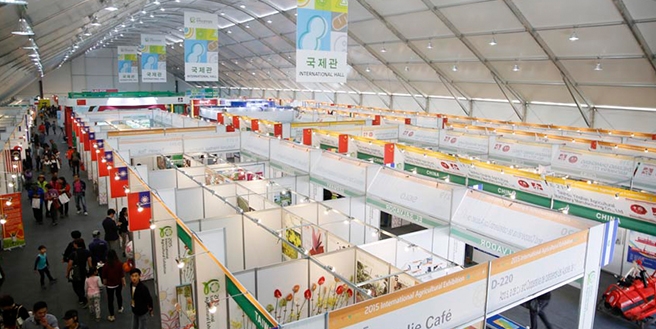
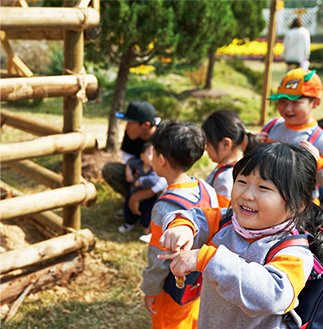
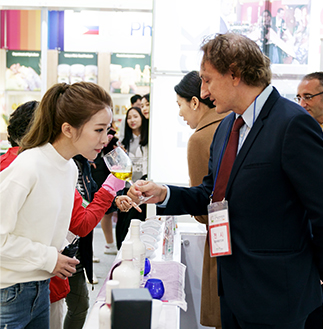
© International Agriculture Exhibition
International Agriculture Exhibition
/ Oct. 17-27
The biennial International Agricultural Exhibition is Korea’s biggest agricultural event, with an annual average of 790,000 visitors from more than 28 countries. The pristine nature of the host city of Naju is ideal for the event’s theme and makes for a perfect venue for the exhibition.
Under the slogan “Agriculture changes the world,” the expo will have 13 exhibition and experiential halls under five themes. The main hall featuring “women’s agriculture platform” will highlight the keywords “women” and “young generation” to display agricultural trends developed from labor- to technology-based industries. Agriculture will also be viewed from a cultural aspect, not simply as a conventional means to produce food. And a variety of exhibits and hands-on programs will feature latest agro-technology.
More about International Agriculture Exhibition ⟶
Other Articles















